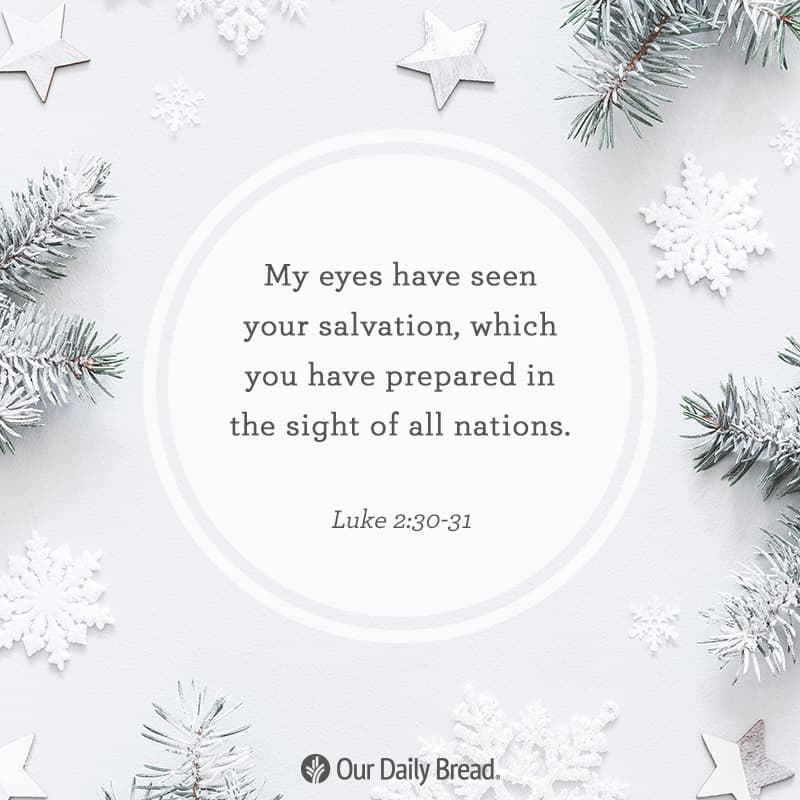The Big Shuffle
In The Call of Service, author Robert Coles, exploring our reasons for serving, tells the moving story of an older woman’s service to others. As a bus driver, she showed great care towards the children she drove to school each day—quizzing them on homework and celebrating their successes. “I want to see these kids make it in life,” she said of her motivation. But there was another reason too.
As a youth, the words of an aunt had shaken this woman to the core. “She’d tell us that we had to do something God would notice,” she told Coles, “or else we’d get lost in the big shuffle!” Worried at the prospect of hell after the “big shuffle” of judgment, this woman had devised ways to “get God’s attention”—going to church so “He’d see me being loyal” and working hard to serve others so God might “hear from others what I was doing.”
I grieved reading her words. How had this dear woman never known that she already had God’s attention? (Matthew 10:30). How had she not heard that Jesus took care of the big shuffle for us, offering freedom from judgment forever (Romans 8:1)? How had she missed that salvation can’t be bought with good deeds but is a gift to anyone who believes? (Ephesians 2:8–9).
Jesus’s life, death, and resurrection take care of our future with God and sets us free to serve others with joy

Support Us
Freely you have received; freely give. Matthew 10:8
Growing into Giving
“I got you a present!” my two-year-old grandson shouted excitedly as he pressed a box into my hands. “He picked it out all by himself,” my wife smiled.
I opened the box to find a Christmas ornament of his favorite cartoon character. “Can I see it?” he asked anxiously, as soon as I unwrapped it. He played with “my” present for the rest of the evening and as I watched him, I smiled.
I smiled because I remembered gifts I had given loved ones in the past, like the album I gave my older brother one Christmas when I was in high school that I really wanted to listen to (and did). And I realized how years later God was still stretching me and teaching me to give more unselfishly.
Giving is something we grow into. The apostle Paul encouraged the Christians in Corinth, “But since you excel in everything . . . see that you also excel in this grace of giving” (2 Corinthians 8:7). Grace fills our giving as we understand that all we have is from God, and He has shown us “it is more blessed to give than to receive” (Acts 20:35).
On the first Christmas, God generously gave us the most unselfish gift of all: His only Son, who would die on a cross for our sins and be raised to life. Any who receive this ultimate gift are rich beyond measure. As our hearts are focused on Him, our hands open in love to others.

A Christmas Visitor
On Christmas Eve, 1944, a man known as “Old Brinker” lay dying in a prison hospital, waiting for the makeshift Christmas service led by fellow prisoners. “When does the music start?” he asked William McDougall, who was imprisoned with him in Muntok Prison in Sumatra. “Soon,” replied McDougall. “Good,” replied the dying man. “Then I’ll be able to compare them with the angels.”
Although decades earlier Brinker had moved away from his faith in God, in his dying days he confessed his sins and found peace with Him. Instead of greeting others with a sour look, he would smile, which “was quite a transformation,” said McDougall.
Brinker died peacefully after the choir of eleven emaciated prisoners sang his request, “Silent Night.” Knowing that Brinker once again followed Jesus and would be united with God in heaven, McDougall observed, “Perhaps Death had been a welcome Christmas visitor to old Brinker.”
How Brinker anticipated his death reminds me of Simeon, a holy man to whom the Holy Spirit revealed that “he would not die before he had seen the Lord’s Messiah” (Luke 2:26). When Simeon saw Jesus in the temple, he exclaimed, “You may now dismiss your servant in peace. For my eyes have seen your salvation” (vv. 29–30).
As with Brinker, the greatest Christmas gift we can receive or share is that of saving faith in Jesus.
A String of Yeses
One Christmas, my grandmother gave me a beautiful pearl necklace. The lustrous globes glowed about my neck until one day the string broke. Balls bounced in all directions off our home’s hardwood flooring. Crawling over the planks, I recovered each tiny orb. On their own, they were small. But oh, when strung together, those pearls made such an impression!
Sometimes my yeses to God seem so insignificant—like those individual pearls. I compare myself to Mary, the mother of Jesus who was so fantastically obedient. She said yes when she embraced God’s call for her to carry the Messiah. “‘I am the Lord’s servant,’ Mary answered. ‘May it be to me as you have said’” (Luke 1:38). Did she understand all that would be required of her? That an even bigger yes to relinquishing her Son on the cross loomed ahead?
After the visits of the angels and shepherds, Luke 2:19 tells us that Mary “treasured up all these things and pondered them in her heart.” Treasure means to “store up.” Ponder means to “thread together.” The phrase is repeated of Mary in Luke 2:51. She would respond with many yeses over her lifetime.
As with Mary, the key to our obedience might be a threading together of various yeses to our Father’s invitations, one at a time, until they string into the treasure of a surrendered life.

